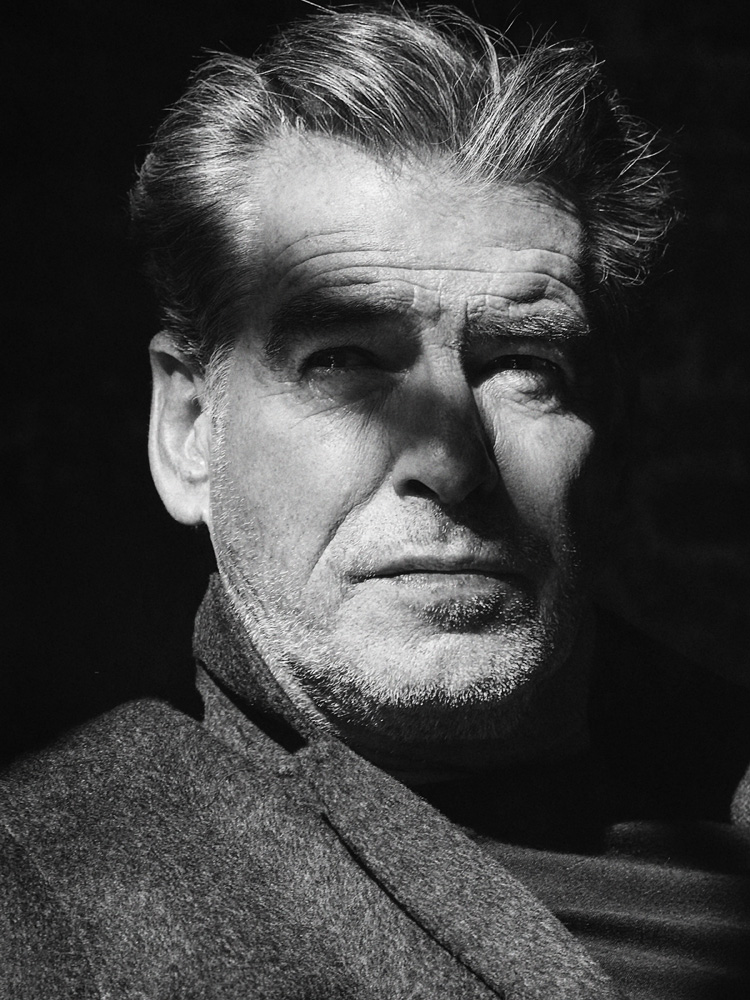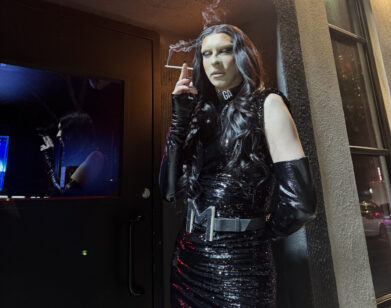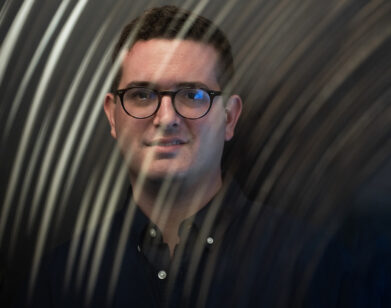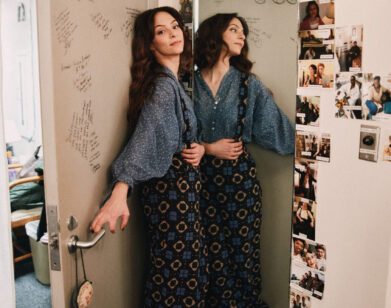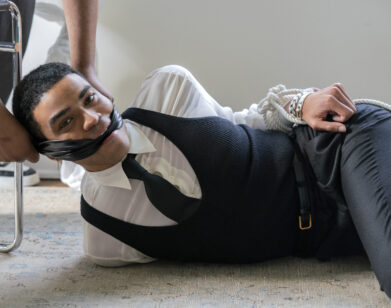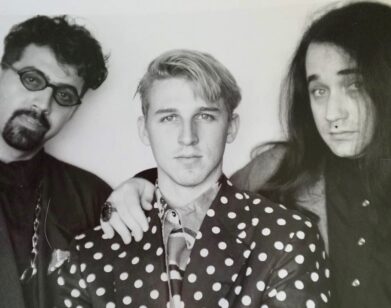Pierce Brosnan
One would be hard-pressed to choose a single defining moment from Pierce Brosnan’s career. There’s Remington Steele, the long-running detective series in which the Irish actor played the impossibly handsome—and impossibly named—title character. Then, of course, there are the four James Bond films, from 1995’s GoldenEye to 2002’s Die Another Day, during which time Brosnan was among the most widely recognized actors on the planet. It would be tough to vote against Bond as a high mark—so long and heavy is the shadow cast by the franchise that it can make all of an actor’s previous work look, in retrospect, like prep, and all of an actor’s work since like a reaction or recoil. And then there are all the incredible performances he has given since (and even during) his tenure as Bond: as an art-heisting billionaire in the 1999 remake of The Thomas Crown Affair, as a womanizing MI6 spy in 2001’s The Tailor of Panama, and as a past-his-prime assassin, for which he earned a Golden Globe nomination, in 2005’s The Matador.
But as he approaches his 64th birthday, Brosnan’s best might be yet to come. This spring, he returned to television in AMC’s The Son, based on the novel by Philipp Meyer, playing a cattle rancher in early 20th-century Texas. Later this year, he reteams with his GoldenEye director, Martin Campbell, for The Foreigner, opposite Jackie Chan. And, to remind us of his range, Brosnan will appear in Marc Webb’s The Only Living Boy in New York, with Jeff Bridges and Kate Beckinsale, as well as the upcoming fantasy adventure The King’s Daughter, playing, well, the king. He may not have a throne at his house in Hawaii (or the one in Malibu), but, as he tells his friend and former co-star Salma Hayek, Brosnan is definitely sitting pretty.
SALMA HAYEK: Hello, Pierce. How are you?
PIERCE BROSNAN: I’m great, darling, great. All the better for hearing your voice.
HAYEK: I have a confession to make: I was already a huge fan before I ever met you, from Remington Steele. So when we did meet, I was trembling.
BROSNAN: Where did we meet?
HAYEK: At Phyllis Carlyle’s house, one of those parties. You wouldn’t remember me. I was just a fan. But you were the nicest gentleman, which is very rare nowadays. Especially in this business.
BROSNAN: How long have you been in this business?
HAYEK: More than 30 years.
BROSNAN: When I found acting, it was my saving grace—still is. That I get paid to do it is remarkable. That I get to meet people like you—one of the most beautiful women I know, with the most magnificent energy—is phenomenal.
HAYEK: I’ve never met anybody who enjoys every moment of making a movie as much as you. You don’t stress out too much, you’re always in a good mood. And you have little rituals throughout the day, which you do with a lot of style—almost like you are celebrating life, not just the work. You have to have your special cup of tea, in nice china, not Styrofoam.
BROSNAN: What are you saying, Hayek?
HAYEK: [laughs] It’s lovely! You don’t drink it as you’re walking, like the rest of us. You find a nice corner to read in.
BROSNAN: That’s true. You’ve got to find your camp. We set up homes constantly—a new trailer, a new set, a new country—so you have to find that space. I suppose there are rituals, but I think that comes from the theater. Before all of this started, I was working in the theater. I ended up in Los Angeles for two weeks and stayed a lifetime.
HAYEK: A lot of people in our business get jaded, but you don’t. Why not?
BROSNAN: Because, for me at least, it doesn’t get any easier. I have The Son coming out, and we’re getting close to showing the world what we did last summer in Texas. That side of it is out of my control, but this is always an anxious time for me.
HAYEK: Tell me about The Son.
BROSNAN: I play Colonel Eli McCullough, a man born out of violence. His parents were pioneers, annihilated by the Comanche. He was kidnapped and brought up by the Comanche. So there’s a duality to the man’s psyche, a fractured mind and heart. We find him as a man in 1915 in Texas.
HAYEK: When you were doing theater in London as a young Irish lad, did you ever imagine you’d be playing a Texan?
BROSNAN: I grew up in an Irish farming town, but cowboys and Indians were the fabric of my life as a young lad. My grandmother used to have this family come around to the house, Ma Crutchey and her two sons. She would sharpen the knives and fix the pots, and her sons would teach me how to make the best bows and arrows and catapults. So it’s always been in my heart to play in a Western. But this is not really a Western; it’s a family saga.
HAYEK: As a kid, did you want to be the cowboy or the Indian?
BROSNAN: The Indian, always. There was something mystical and magical about them. There were two cinemas in town, and all week we’d anticipate going to the pictures on a Friday afternoon. To sit there with all your friends and the people of the town. To find out what was happening in the world through these little newsreels. And then, of course, the Western would take off. But I never wanted to be an actor. That came later, in my teenage years.
HAYEK: Do you remember one movie that you saw at that age that really stayed with you?
BROSNAN: The Defiant Ones, with Sidney Poitier and Tony Curtis, a black-and-white movie about black and white issues. Poitier and Curtis are convicts who are handcuffed together, and they escape together, in handcuffs. I think I was about 7 or 8 at that time. It was, for me, a very charged, emotional film. I could get the undertow of it, even though in our community there were so few black people. I’d never seen anyone from another country. So it was fascinating, and the storytelling was something I’d never seen before.
HAYEK: Do you remember the first time you took a girl on a date to the movies?
BROSNAN: I want to say it was Bonnie and Clyde. At least I think there was a girl involved. I don’t remember her name.
HAYEK: [laughs] But you remember the movie.
BROSNAN: Carol! Carol was her name.
HAYEK: Lucky Carol.
BROSNAN: Lucky Pierce.
HAYEK: Remington Steele was an extremely successful series, of course, and now TV has become the thing to do. I’m sure happy you’re back on a series, so that I have easy access to a whole lot of you. It’s a miniseries?
BROSNAN: It’s ten episodes this season. I’ve said yes to three years. My late producing partner, Beau Marie St. Claire, and I had been actively looking for something like this for three years. And somehow this one just came out of left field last summer. I was supposed to go to Russia to do a film, and when that fell apart, I said to my agent, “Look, I don’t want to be sitting on my ass here in Hawaii or Malibu. I want to work.”
HAYEK: Oh my god, how horrible! Sitting on your ass in Hawaii or Malibu!
BROSNAN: I get restless. Two months off is fine, but three months becomes four months … I need to work, just to stay busy. I like to paint.
HAYEK: How long have you been painting?
BROSNAN: I’ve been painting since ’87. I had been in Los Angeles since 1981, doing the TV series. And in ’81, I bought myself an easel and paintbrushes and canvases, all these wonderful supplies, and they stayed in the cupboard. I never painted. My late wife was diagnosed with cancer in ’86, and then, one night in ’87, when it was dark and I was filled with fear and anxiety for the life ahead, I started painting. It just sprang from that painful time in life. And the paintings have since developed their own kind of style and articulation. I’m looking at having an exhibit in Paris at the end of the year. I think it’s time to let them go. I’ve got about 153 pieces, and I want to shave that down to 20 or 30 pieces and make a book. The art helps, between the acting gigs. I feel that if I can sing in Mamma Mia! [2008], then goddammit, I can hang a few paintings, give people lots of cocktails, and have a good time.
HAYEK: And Mamma Mia! was a huge success.
BROSNAN: It was criminal how much fun we had on that movie. Once I got through the trauma of having to listen to myself sing, the rest was just sheer joy, especially in the company of Meryl.
HAYEK: Who’s your company in The Son?
BROSNAN: Jacob Lofland plays the young Eli. He was in the movie Mud with Matthew McConaughey, and he’s quite brilliant.
HAYEK: Does your Eli have a wife?
BROSNAN: He’s a widower. He has two sons. It’s about this family, and we battle for boundaries with Mexicans, and then there’s the Comanche, and the Law & Order League men, who are the Ku Klux Klan of their day. It’s this very volatile time in American history, where borders are being developed and boundaries are being made.
HAYEK: That feels timely.
BROSNAN: It’s very relevant to what’s going on today with all the nonsense of 45. The biggest challenge for me was the accent.
HAYEK: [laughs] Oh my god, yes.
BROSNAN: The Texan accent is very tricky. But I immersed myself in listening to various people.
HAYEK: Matthew McConaughey?
BROSNAN: I listened to Matthew. I listened to LBJ, to Willie Nelson, to Rick Perry, Waylon Jennings. And then I found a congressman named Ted Poe, and I listened to him a lot. I grew the beard for three months and, out of the beard and the horse and the accent came a character that I really fell in love with.
HAYEK: Are you producing now, or are you taking a break?
BROSNAN: I am producing. My agents had been setting up meetings for me with prospective producing partners, and then one night I was sitting across the table from my wife, and I thought, “You and I should just produce.” So Keely and I are producing together. She’s just made a documentary called Poisoning Paradise, and we’re here in the islands now for the Hawaii International Film Festival. She’s been winning lots of awards.
HAYEK: How long have you two been together?
BROSNAN: We’ve been together 23 years.
HAYEK: And how long were you with your late wife?
BROSNAN: 17 years. I’m the Irish Catholic marrying kind. An Irish Catholic actor, like Spencer Tracy, my grandfather’s favorite.
HAYEK: Your grandfather was very important to you, was he not?
BROSNAN: He was. He was my father figure because the old man split when I was an infant. I didn’t really see Tom Brosnan until I was about 31. I was shooting Remington Steele in Ireland, and he showed up one Sunday. We sat down and we had a cup of tea, and after we drank all the tea, we went downstairs and started drinking Guinness. [laughs] Then he got on a bus, and I never saw him again. He died.
HAYEK: Where now do you feel most at home?
BROSNAN: Here in Kauai it’s so beautifully, sensuously soporific. I love coming here when I’ve finished work, but I can only take so much beauty before I have to get off the rock and back to the city.
SALMA HAYEK IS AN ACADEMY AWARD–NOMINATED ACTRESS AND PRODUCER. SHE WILL BE SEEN NEXT MONTH IN THE FILM BEATRIZ AT DINNER.

